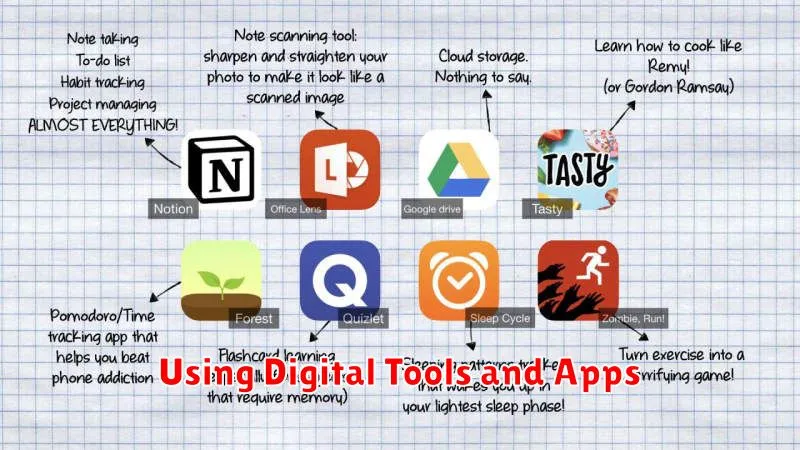College success requires more than just attending classes; it demands effective study habits. Developing strong study skills is essential for achieving academic goals, managing time efficiently, and reducing stress. This article will explore proven study strategies that can significantly impact your college experience and pave the way for future success. From time management and note-taking techniques to active recall and effective test preparation, we will delve into the key components of effective study habits that empower students to thrive in the demanding college environment. Understanding and implementing these essential strategies can be the difference between simply passing and truly excelling in your college coursework.
Are you ready to unlock your academic potential and achieve college success? This guide offers practical, actionable advice on cultivating effective study habits. We’ll cover topics such as creating a productive study environment, maximizing concentration, and utilizing effective learning techniques. Whether you’re a freshman navigating the complexities of college life or a seasoned student looking to improve your academic performance, these essential study habits will provide you with the tools you need to excel. By incorporating these strategies into your routine, you can not only improve your grades but also gain a deeper understanding of the material and develop lifelong learning skills essential for success in any field.
Creating a Consistent Study Schedule
A consistent study schedule is crucial for academic success in college. It helps manage time effectively, reduces stress, and promotes better learning.
Begin by assessing your current commitments, including classes, work, and extracurricular activities. Identify available study blocks throughout the week and allocate specific times for each subject.
Prioritize tasks based on deadlines and importance. Break down large assignments into smaller, manageable chunks to avoid feeling overwhelmed.
Consistency is key. Stick to your schedule as much as possible. Even short, regular study sessions are more effective than sporadic cramming.
Flexibility is also important. Be prepared to adjust your schedule as needed, but always aim to maintain a regular study routine.
Using Active Learning Techniques

Passive learning, such as simply rereading notes or listening to lectures, often proves insufficient for deep understanding and retention. Active learning, on the other hand, engages you directly with the material, leading to more effective learning.
Several techniques can transform your study sessions into active learning experiences. Summarizing information in your own words forces you to process and synthesize concepts. Teaching the material to someone else solidifies your understanding and reveals any gaps in your knowledge. Practicing through quizzes, problem sets, and flashcards reinforces what you’ve learned and helps identify areas for improvement.
Participating actively in class discussions and study groups provides valuable opportunities to ask questions, clarify doubts, and learn from different perspectives. Experimenting with different active learning techniques will help you discover the methods that best suit your learning style and the specific subject matter.
Eliminating Distractions While Studying

Minimizing distractions is crucial for effective studying. A focused environment allows for better concentration and information retention. Identify your common distractions and take proactive steps to eliminate them.
Technology can be a major source of interruption. Silence your phone, disable social media notifications, and close unnecessary browser tabs. Consider using website blockers or apps designed to limit access to distracting sites during study sessions.
Your physical environment also plays a significant role. Choose a quiet study space, preferably one dedicated solely to studying. Ensure comfortable lighting and temperature. Inform those around you of your study schedule to minimize interruptions.
Internal distractions, like wandering thoughts or stress, can be addressed through mindfulness techniques. Brief meditation or deep breathing exercises can help refocus your attention. Breaking down study sessions into shorter, focused intervals can also improve concentration and reduce mental fatigue.
Finding the Right Study Environment
A productive study environment is crucial for academic success. It’s not a one-size-fits-all solution; what works for one student might not work for another. Experiment to discover your ideal setting.
Consider these factors: location, noise level, and organization. Some students thrive in the quiet solitude of a library, while others prefer the low hum of a coffee shop. Some need absolute silence, while others find a little background noise helpful.
Organization is key. A cluttered workspace can lead to a cluttered mind. Ensure your study area is clean, well-lit, and stocked with necessary supplies.
Minimize distractions. Turn off social media notifications, silence your phone, and let your friends and family know when you need uninterrupted study time. Creating a dedicated study space, free from distractions, will significantly improve your focus and retention.
Reviewing Notes Regularly
Regular review is essential for transferring information from short-term to long-term memory. Don’t wait until the week before the exam to look at your notes again. Consistent, spaced repetition strengthens memory retention.
Effective review strategies include summarizing your notes, creating flashcards, teaching the material to someone else, and testing yourself frequently. Find a method that works best for your learning style.
Schedule specific times for review in your study plan. Even short, 15-20 minute review sessions can make a significant difference. Reviewing material soon after learning it is particularly beneficial.
Using Digital Tools and Apps

Digital tools and apps can significantly enhance your study habits and overall academic performance. Effectively leveraging these resources can lead to better organization, time management, and knowledge retention.
Consider using calendar apps and task management tools to schedule study sessions, set deadlines, and track assignments. These tools can help you stay organized and prioritize tasks effectively.
Note-taking apps offer a convenient way to record and organize lecture notes, reading summaries, and research materials. Many of these apps offer features such as cloud syncing, search functionality, and multimedia integration.
Explore flashcard apps and quizzing platforms for effective memorization and concept review. These tools can reinforce learning and help you identify areas where you need to focus your studies.
Finally, be mindful of digital distractions. Utilize website blockers and app timers to minimize interruptions and maintain focus during study sessions.
Knowing When to Ask for Help
One crucial aspect of effective studying is recognizing when to seek assistance. College coursework can be challenging, and attempting to overcome obstacles alone can lead to frustration and wasted time. Knowing when to ask for help is a sign of strength, not weakness.
Several indicators suggest it’s time to reach out for support. If you find yourself consistently struggling with a particular concept despite dedicated study, don’t hesitate to ask. If you’re feeling overwhelmed by the workload or unsure about assignment requirements, seeking clarification is essential. Similarly, if you’re consistently scoring lower than expected on quizzes or exams, it’s a clear sign that you might benefit from additional guidance.
Don’t wait until you’re completely lost or failing a course to ask for help. Proactive help-seeking allows you to address challenges early on, preventing them from snowballing into larger problems. Utilize available resources such as professors’ office hours, tutoring services, and study groups to gain a better understanding of the material and improve your academic performance.

